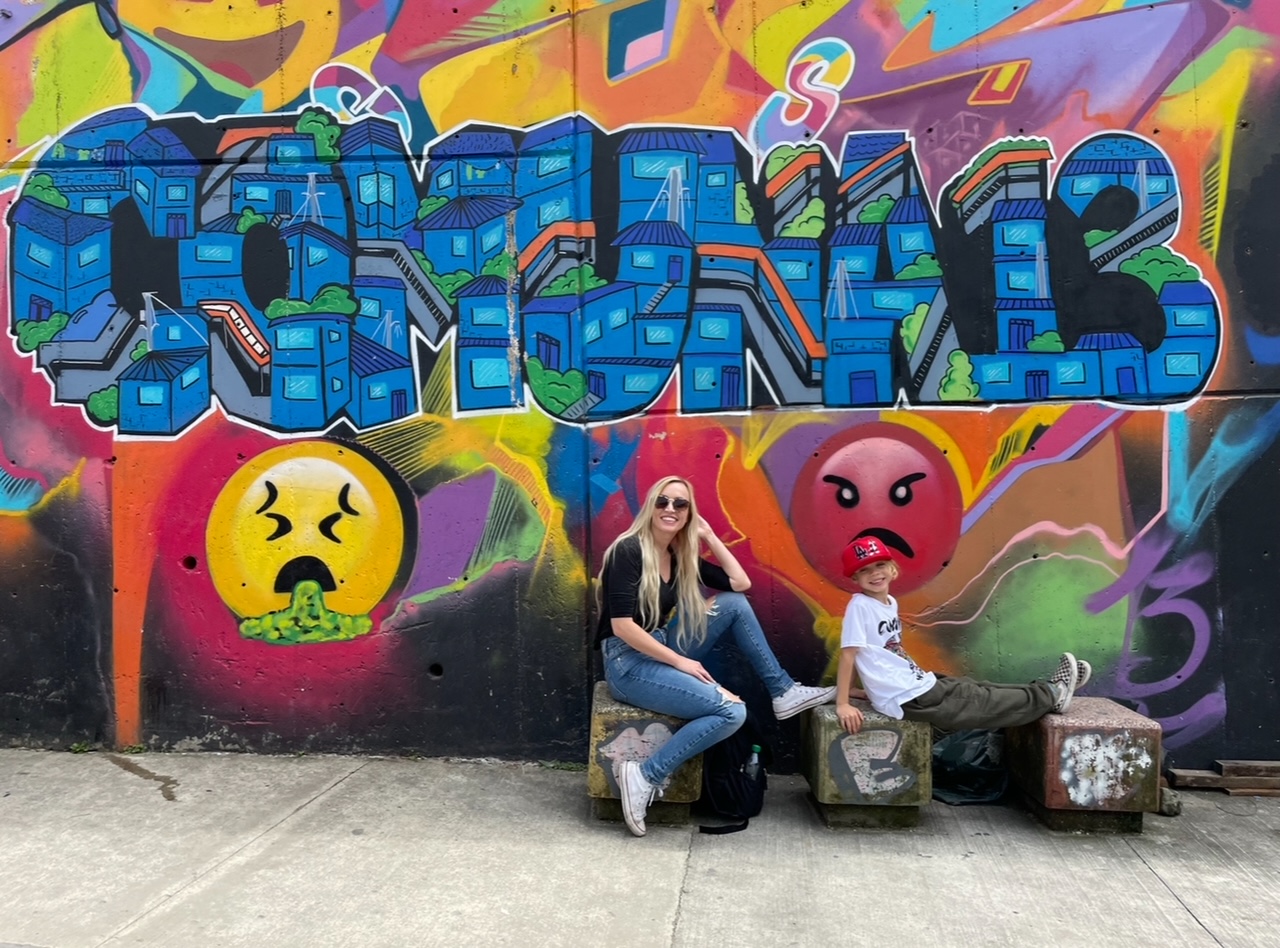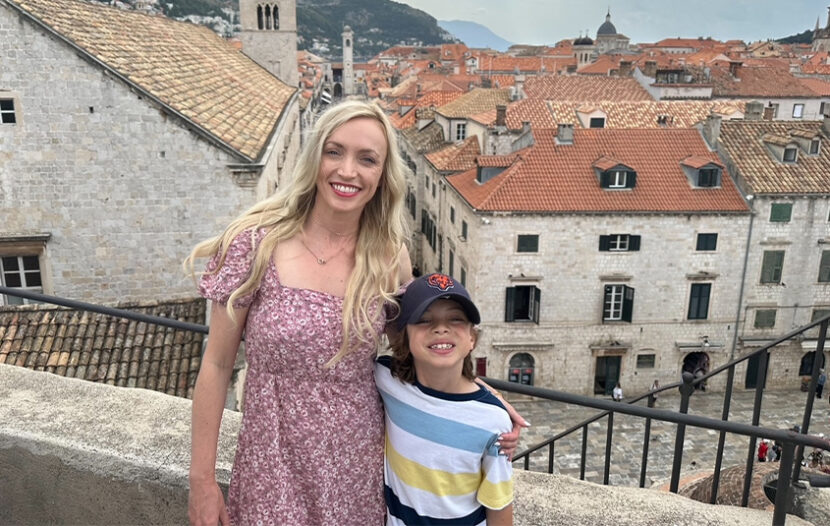TORONTO — Celeste Hamilton has always loved travelling with her eight-year-old son, Kaylan. As a single mother, the Central California-based meditation teacher and scientist-by-training credits their many travels for their close bond, starting with their very first overseas trip to Japan when Kaylan was just 13 months old.
Over the years, a new ritual was born: one big trip, just the two of them, every summer for about 10 days. From Colombia to Portugal to most recently Croatia, Celeste and Kaylan are determined to explore the world — together. And not even an autism diagnosis will stop them.
“We discovered Kaylan had Autism Spectrum Disorder (ASD) when he was around four years old,” Hamilton tells Travelweek. “He can get overstimulated and have difficulty self-regulating in a busy or hectic environment with a lot of people.”
Of course, “busy” and “hectic” often go hand in hand with travel, but that hasn’t stopped Hamilton or her son from venturing abroad. It just means having to cut back on certain activities and taking a few extra steps to accommodate Kaylan’s needs.
“I usually stick to one site or activity or tour per day and leave the rest of the day open. This allows for a good mix of rest and activity each day so we don’t feel rushed or tired during the trip. I know my son likes to look forward to some quiet video game time after a busy day, and I also enjoy space for my meditation so it balances out well,” says Hamilton.
But given that autism is a neurodevelopmental condition, there’s bound to be a few challenges that arise during their travels, most of which, says Hamilton, center around food.
“My son is very picky about food so I always bring snacks that he likes from home in our suitcase and stop by grocery stores while travelling for some staples. But it’s tricky to get enough ‘real food’ in sometimes,” she adds, noting that the trick is to simply go with the flow and to allow herself plenty of flexibility and grace.
What Hamilton says makes a world of difference is booking private personalized tours, transfers and guides, or small group tours that can allow for extra time for Kaylan to rest and eat. To give herself some much-needed alone time – and Kaylan the chance to interact with other kids – she also recommends taking advantage of kids clubs, like the one offered at the hotel they stayed at in Croatia.
“The kids club was great because my son was eager to play with peers and engage in fun activities for a few hours,” she says. “If I had been more intentional with my planning, I could have booked a massage with that solo time!”
Of course, kids clubs have been the norm at all-inclusive resorts for years, offering a wide range of activities and amenities for young guests, from arts and crafts and video games, to movie nights and water sports. But for families like Hamilton’s that include members with autism, there are certain resorts, like Beaches Resorts, that offer the added benefit of being Certified Autism Centers.
Part of Sandals Resorts International (SRI), Beaches Resorts became the first resort company to be designated as a Certified Autism Center (CAC) in 2017. Just a few years later in 2019, it also became the first to attain the Advanced Certified Autism Center (ACAC) designation from the International Board of Credentialing and Continuing Education Standards (IBCCES). Today, all three Beaches properties – Beaches Turks & Caicos, Beaches Negril and Beaches Ocho Rios – are home to the Caribbean’s first autism-friendly Kids Camps, run by team members who’ve completed a minimum 40 hours of autism sensitivity training, in addition to the minimum 2,000 hours of childcare training through Beaches’ membership in the International Nanny Association.
According to Heather Effs, Corporate Manager, Entertainment at Beaches Resorts, the feedback from parents has been “incredible” over the past seven years since Beaches first introduced its autism-friendly programs and services.
“They especially appreciate that everything is tailored to their child’s specific needs. Dining habits can be customized at any of the up to 20 restaurants per Beaches resort by speaking to a team member at the on-site Beaches Culinary Concierge desk. Even our watersports program can offer an autism-friendly scuba diving program for people on the spectrum,” says Effs.
“There’s nothing more rewarding than watching a guest on the spectrum – whether it’s a toddler, tween or even a young adult – try something new during their time with us. To some, it may seem like a small thing, for example, trying a new food that they normally don’t eat or even jumping in the pool for the first time. But we know that it really is a huge thing! These are the moments that are truly unforgettable, for the families and for our team members,” she adds.
It’s these monumental ‘firsts’ that Hamilton also cherishes, knowing just how much new experiences mean to her son.
“On our latest trip to Croatia, we went on our first boating trip around the Solta and Brac islands and our private guide taught my son how to drive the boat. I love seeing his eyes light up when he learns something new about a country, culture or people, like taking our first helicopter ride, discovering how coffee is made on a coffee farm, or seeing the old buildings and cobblestone streets of Europe,” says Hamilton.
1 IN 50 CHILDREN AND YOUTH
According to Autism Speaks Canada, 1 in 50 children and youth are diagnosed with autism, representing a significant travel market. In recent years, Canada’s travel industry has taken several steps to accommodate persons with autism and other diverse needs. Toronto Pearson, for example, has partnered with Autism Ontario and Magnusmode to provide autism- and neurodiverse-friendly resources, including ‘Card Decks’ that provide step-by-step instructions for all airport activities, and the Sunflower Program, which offers a discreet way to identify passengers with invisible disabilities who may need extra assistance. Air Canada adopted the program, which first launched at Gatwick Airport in 2016, back in January.

Celeste Hamilton and her son Kaylan in Medellín, Colombia
But the road to smooth travels for families with autistic children begins long before their arrival at the airport, as Hamilton can attest. During the booking stage, she says it’s important to find a travel agent who’s both intuitive and proactive.
“I think it’s good practice for the agent to ask questions – not assume – and be open to listening to client requests and preferences. I also like when travel agents give a head’s up to local guides about my son’s needs so that they know what to expect and that everyone is on the same page. Open communication is key,” says Hamilton.
And so what’s next for Hamilton and her son? Where are they headed in 2025? Morocco!
“After our Colombia trip, I discovered how special this time is for us to bond and spend quality, uninterrupted time together,” she says. “Our trips are our special mommy and son time. I just love having that dedicated time together.”
This article originally appears in the Aug. 15 issue of Travelweek. To read the issue, click here.

